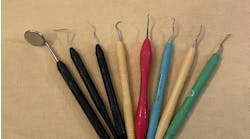by Joseph Picard
Homeless advocates say it's a tough thing to get off the street or out of the woods once you've landed there.
But that's not to say no one ever does.
Shauna Calhoun was newly divorced, pregnant, and had a 3-year-old daughter when it became apparent that she could no longer afford her Jackson apartment.
"The apartment was $875 a month," said Calhoun, 25, reflecting on her situation nearly three years ago. "It cost another $800 for day care. The money I made working as a dental assistant covered the day care. Child support almost covered the rent. But then there was food, clothing, utilities, the car. I couldn't make it. We had to move out."
She gave birth to Jasmine and shortly thereafter the Calhouns — Shauna, Jasmine, and 3-year-old Faith — were living in Shauna's car.
"I went to social services (Ocean County Board of Social Services) just before we became homeless and asked for help," Calhoun said. "They told me I made enough money and should learn how to budget it better. I went to them again when we were homeless. They suggested I sell the car for some rent money."
She considered the suggestion ridiculous. Even if she sold the car for a month's rent, she could not work without a car and, therefore, would be back on the street with even less shelter from the elements.
So she went back to raising her family in her car.
She could not hold a job. She scrounged to buy soft food for her infant. She improvised for diapers. Mother and older daughter lived on McDonald's french fries.
"It was very, very hard," Calhoun said, her voice
growing husky from the memory.
But someone at the county social services board did help the Calhouns by referring them to the Interfaith Hospitality Network of Ocean County.
The network consists of 13 churches and a synagogue that provide space and volunteers to host homeless families — almost always women and children. The families stay one week at each participating facility.
"The people at Interfaith were wonderful to me and my kids," she said. "They were understanding. They gave us shelter and food. They looked for ways to help. They made us feel like human beings."
She stayed in the network for three months. The volunteers there helped her find a housing subsidy and monetary assistance for day care. The Calhouns secured an apartment, again in Jackson, and Calhoun, while working, entered Middlesex County College, where she is studying to become a dental hygienist. That job should help her stay, as she wishes, in Ocean County.
"Now I have a chance," she said. "I can't tell you how sad it can be, out there on your own, with nothing. I really think the state should do more for its people. Nobody wants to live that way.
Against the odds
Many students today face enormous barriers on the path to becoming a dental hygienist. We asked Shauna what her background was prior to dental hygiene school: "I went to a vocational high school, Delcastle, in Delaware, and they got me interested in dental assisting. Then I moved back to New Jersey and attended Ocean County Vocational School and completed my Dental Assistant Certification."
How do you manage financially, and what school activities are you involved with? Her reply: "At the moment, I receive financial aid to pay for my school, and I take out loans so that I can pay for transportation and some child care and rent while I am in school. It is virtually impossible for me to work while in such a demanding program. I also receive child support that helps pay for child care, along with help from the Children's Home Society. So, really, my financial need is paying for gas to go one hour to and from school, and rent.
"Some activities I am involved with are SADHA, in which I was voted the vice president for freshman year; I do plan on continuing my involvement with SADHA. I have also been inducted into Phi Theta Kappa, the community college's National Honor Society. This past April, I joined Phi Theta's Board as one of the vice presidents. So, as you can see, I have my hands full at school while still being a mom and active in my church community (feeding the homeless).
"I would just like to say that at one point in time, I believed that my circumstances were too great for me to overcome, but these past two years have shown me that I am able to do whatever I put my mind to. I have the opportunity to help many people in a field that I have loved for many years, and I know I will be a very successful hygienist 'because I can!' This program has pushed me and motivated me to work harder than I have ever worked, and because of it I am a stronger woman and I can be proud of myself. When my children ask how school was, I know I did the best that I could do. I couldn't ask for a better role model for my children."
Shauna Calhoun, future RDH
(This article, written by Joseph Picard, originally appeared in the Asbury Park Press and is reprinted with permission.)





